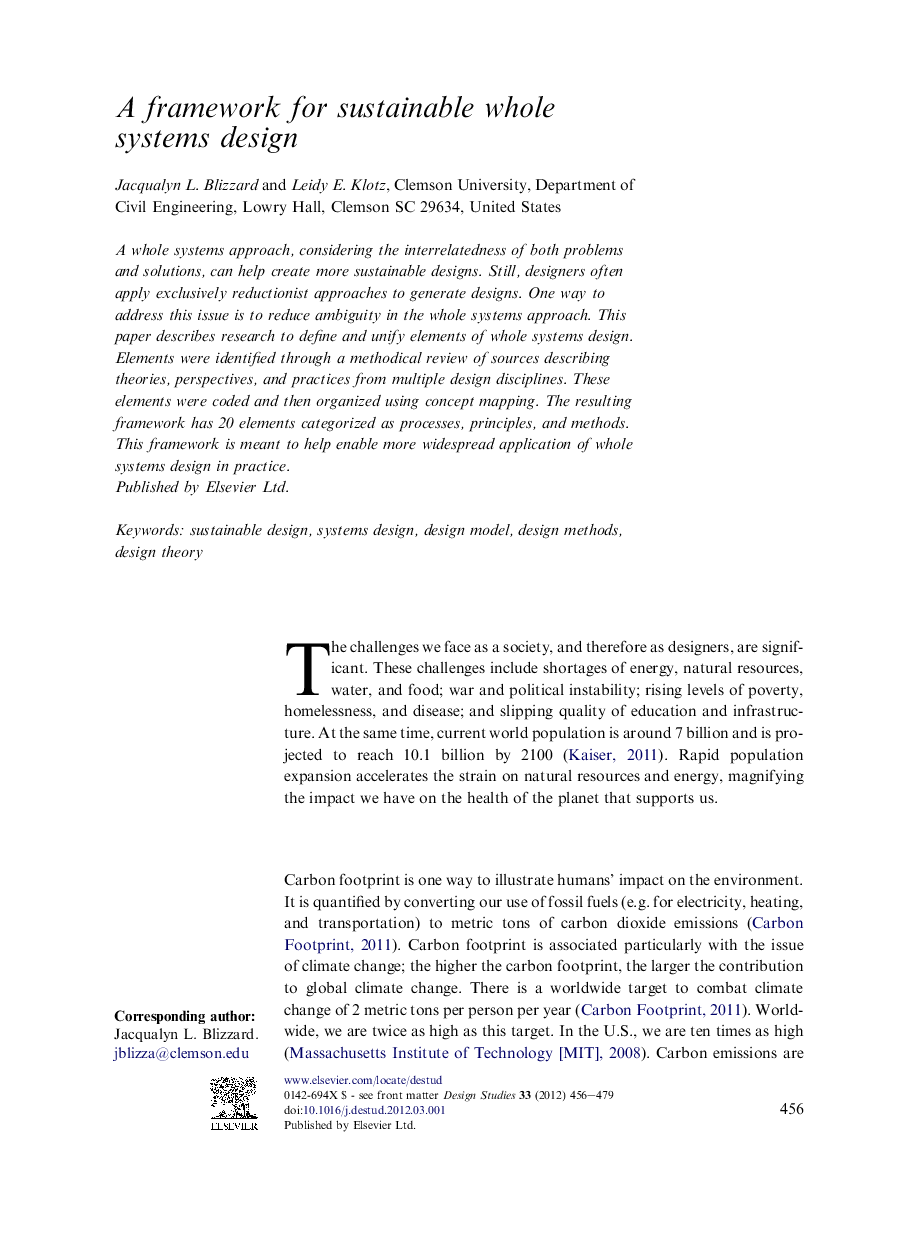| Article ID | Journal | Published Year | Pages | File Type |
|---|---|---|---|---|
| 261717 | Design Studies | 2012 | 24 Pages |
A whole systems approach, considering the interrelatedness of both problems and solutions, can help create more sustainable designs. Still, designers often apply exclusively reductionist approaches to generate designs. One way to address this issue is to reduce ambiguity in the whole systems approach. This paper describes research to define and unify elements of whole systems design. Elements were identified through a methodical review of sources describing theories, perspectives, and practices from multiple design disciplines. These elements were coded and then organized using concept mapping. The resulting framework has 20 elements categorized as processes, principles, and methods. This framework is meant to help enable more widespread application of whole systems design in practice.
► A unifying framework for sustainable design is needed for practice and education. ► A systematic approach can help develop this framework with input from many disciplines. ► The framework developed has 20 elements categorized as processes, principles, and methods.
